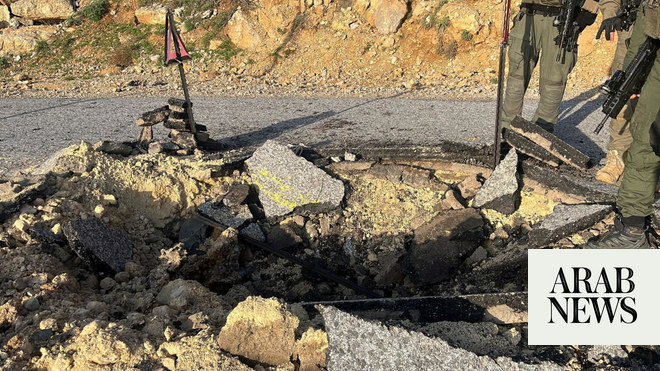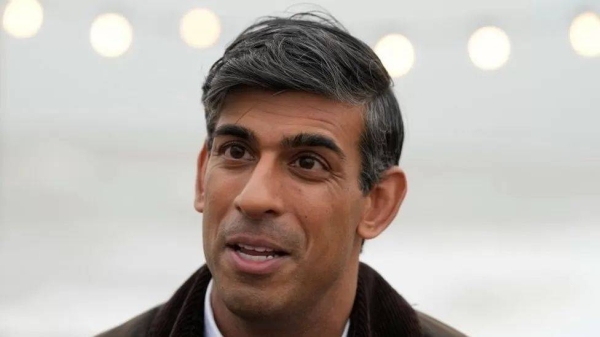
Leaders urge restraint and rational decision-making to avoid further instability in the region
LONDON: World leaders, including President Emmanuel Macron, British Foreign Secretary David Cameron, and the EU’s foreign policy chief Josep Borrell, emphasized on Monday the need to prevent escalation in the Middle East following Iran’s failed attack on Israel.
They urged restraint and rational decision-making to avoid further instability in the region.
EU’s Borrell says Middle East on cliff edge
The European Union’s foreign policy chief said on Monday the Middle East stood “on the edge of the cliff” and called for de-escalation in the conflict between Israel and Iran.
Iran launched hundreds of drones and missiles at Israel on Saturday night in response to a suspected Israeli attack on the Tehran’s consulate in Damascus that killed seven officers of the Iranian Revolutionary Guards including two senior commanders.
Israel has neither confirmed nor denied responsibility for the April 1 airstrike on the consulate in Syria’s capital.
“We’re on the edge of the cliff and we have to move away from it,” EU foreign policy chief Josep Borrell told Spanish radio station Onda Cero. “We have to step on the brakes and reverse gear.”
Borrell said he expected a response from Israel to the unprecedented aerial attack by Iran but hoped it would not spark further escalation.
He said there was “profound division” within the Israel’s right-wing governing coalition between hardliners seeking fierce retaliation and a “more moderate and sensible” faction.
That faction advocates for retaliation, Borrell said, “but in a way that avoids a response to the response”.
Borrell, who spoke with Iranian Foreign Minister Hossein Amirabdollahian late on Sunday, said the EU needed to have the best possible relations with Iran despite the sanctions the bloc has imposed on the Islamic Republic over its disputed nuclear energy programme and other issues.
“It’s in everyone’s interest that Iran does not become a nuclear power and that the Middle East is pacified,” he said.
UK"s Cameron urges Israel restraint after Iran attack
British Foreign Secretary David Cameron urged Israel not to retaliate after Iran’s drone and missile attack, saying it should “think with head as well as heart” because Tehran’s strike had been a near total failure.
The strike by more than 300 missiles and drones from Iran caused only modest damage in Israel as most were shot down by its Iron Dome defense system and with help from the US, Britain, France and Jordan. It followed a suspected Israeli airstrike on Iran’s embassy compound in Syria on April 1.
“I think they’re perfectly justified to think they should respond because they have been attacked, but we are urging them as friends to think with head as well as heart, to be smart as well as tough,” Cameron told BBC TV.
He said he was urging Israel not to escalate the tensions in the Middle East.
“In many ways this has been a double defeat for Iran. The attack was an almost total failure, and they revealed to the world that they are the malign influence in the region prepared to do this. So our hope is that there won’t be a retaliatory response,” he told Sky News.
Cameron said Britain would also work with allies to look at imposing more sanctions on Iran, and it urged Israel to return its focus on agreeing a ceasefire with Iran-backed Hamas in the Gaza war.
Macron says will do everything to avoid Middle East ‘conflagration’
President Emmanuel Macron said Monday that France would help do everything to avoid an escalation in the Middle East.
“We will do everything to avoid a conflagration that is to say an escalation,” he told the BFMTV news channel.
“For several years now we have had an air base in Jordan to fight terrorism,” he said.
“Jordanian airspace was violated... We made our planes take off and we intercepted what we had to intercept.”
Experts say Israel was able to neutralize most of the missiles and drones.
French Foreign Minister Stephane Sejourne on Sunday said he had asked the foreign ministry to summon the Iranian ambassador on Monday to express a “message of firmness.”












